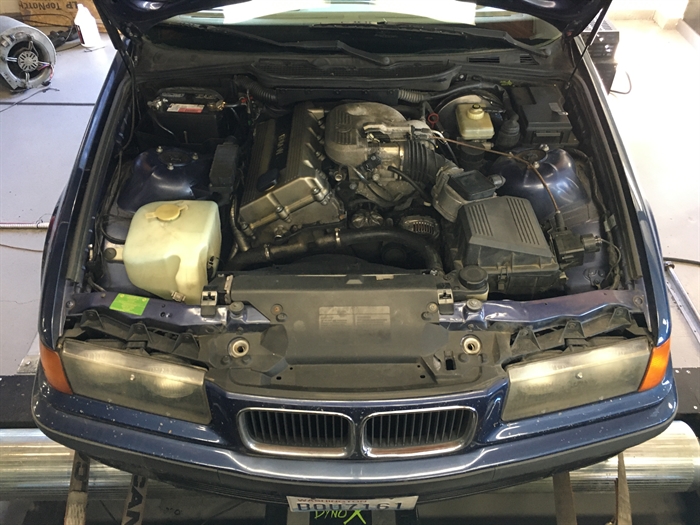Secret Attributes to Try To Find When Acquiring an Engine for Automotive Applications
When considering the acquisition of an engine for automobile applications, several key attributes warrant cautious evaluation to guarantee optimum efficiency and performance. From power and efficiency abilities to sustain resilience, adherence, and performance to exhausts requirements, each facet plays an essential function in determining the engine's viability for specific automobile needs.
Power and Efficiency
When choosing an auto engine, customers prioritize power and efficiency to make certain optimum driving experience and effectiveness. A well-performing engine not just provides power effectively yet also operates smoothly throughout various speed ranges and driving problems.
Purchasers often consider the engine's torque outcome alongside its power score. Torque, gauged in pound-feet (lb-ft) or Newton-meters (Nm), shows the engine's rotational pressure, influencing the lorry's capability to tow, climb inclines, and accelerate from standstill. A balance in between power and torque is essential for accomplishing a receptive and versatile driving experience. Furthermore, variables such as engine turbocharging, crossbreed, and variation modern technologies play considerable roles in enhancing both power and performance degrees. Eventually, selecting an engine that supplies a potent combination of power and performance ensures a satisfying and reliable driving experience. bmw 318ti.
Fuel Effectiveness
Maximizing fuel efficiency is an extremely important consideration for consumers when assessing automotive engine options. Modern engines with features like straight gas injection, turbocharging, and variable shutoff timing can considerably improve gas effectiveness by improving burning processes and reducing power loss.

Sturdiness and Integrity
Attaining long-lasting performance and dependable operation is essential for consumers examining the resilience and dependability of vehicle engines. When taking into consideration an engine for automobile applications, resilience refers to the engine's ability to stand up to wear, stress and anxiety, and rough operating problems over an extensive duration. Dependability, on the other hand, implies that the engine can regularly do its intended function without unforeseen break downs or failings.
Consumers need to search for engines built with premium materials and precise design to guarantee durability. Parts such as pistons, crankshafts, and bearings should be long lasting to handle the engine's power result without early wear. Furthermore, engines equipped with innovative cooling systems, efficient lubrication, and durable purification mechanisms tend to show greater degrees of reliability.
Regular maintenance and adherence to producer recommendations are additionally vital consider preserving an engine's sturdiness and reliability. By adhering to upkeep routines, making use of suggested liquids, and addressing any kind of issues quickly, consumers can take full advantage of the life expectancy and performance of their vehicle engines. Ultimately, prioritizing toughness and reliability in engine option can lead to a more gratifying ownership experience with less unexpected disturbances.
Emissions Conformity
Making certain compliance with emissions laws is a critical element of reviewing vehicle engines for environmentally conscious customers. With raising issues about air quality and environmental influence, rigorous exhausts standards have been implemented around the world to lower dangerous pollutants released right into the environment. When purchasing an engine for automotive applications, it is crucial to consider its discharges compliance to lessen the carbon impact and follow lawful requirements.
Modern engines are furnished with sophisticated discharge control modern technologies such as catalytic converters, exhaust gas my latest blog post recirculation (EGR) systems, and selective catalytic reduction (SCR) to reduce harmful exhaust gases like nitrogen oxides (NOx), carbon monoxide (CARBON MONOXIDE), and hydrocarbons (HC) These systems play a vital function in making certain that the engine satisfies the defined emissions standards and operates within permissible limits.

Cost-effectiveness
When taking into consideration automotive engine purchases, examining cost-effectiveness is vital for consumers looking for both efficiency and value. It encompasses the general costs connected to upkeep, gas intake, and prospective repair work over the engine's life expectancy.
One secret element of cost-effectiveness is fuel efficiency. Engines that are designed to take full advantage of fuel economy can result in considerable cost savings with time, particularly for people that drive frequently or over cross countries. Additionally, considering the schedule and affordability of spare parts and servicing can add to the general cost-effectiveness of an engine. Ensuring that repair and maintenance are accessible and browse around here practical can avoid unforeseen financial concerns down the line.

Verdict
To conclude, when purchasing an engine for automobile applications, it is essential to consider key attributes such as power and efficiency, fuel performance, integrity and toughness, emissions conformity, and cost-effectiveness. These factors are essential in making sure that the engine satisfies the needs of the lorry and operates effectively in different driving problems - bmw 318ti. Making an educated decision based on these standards will eventually lead to a successful and effective vehicle engine acquisition
From power and performance abilities to sustain effectiveness, durability, and adherence to emissions requirements, each aspect plays an important duty in figuring out the engine's suitability for specific auto demands. Engines created to run on alternative gas such as electrical power, hybrid systems, or biofuels can offer enhanced fuel economic climate and lower discharges contrasted to typical gasoline or diesel engines. Consumers ought to thoroughly consider the gas performance scores and technologies incorporated into automotive engines to make educated acquiring choices that line up with their concerns for cost savings and sustainability.
When taking into consideration an engine for auto applications, durability refers to the engine's ability to hold up against wear, stress, and extreme operating conditions over an extended duration.In conclusion, when acquiring an engine for auto applications, it is crucial to take into consideration key click for more info attributes such as power and performance, gas effectiveness, dependability and toughness, emissions compliance, and cost-effectiveness.